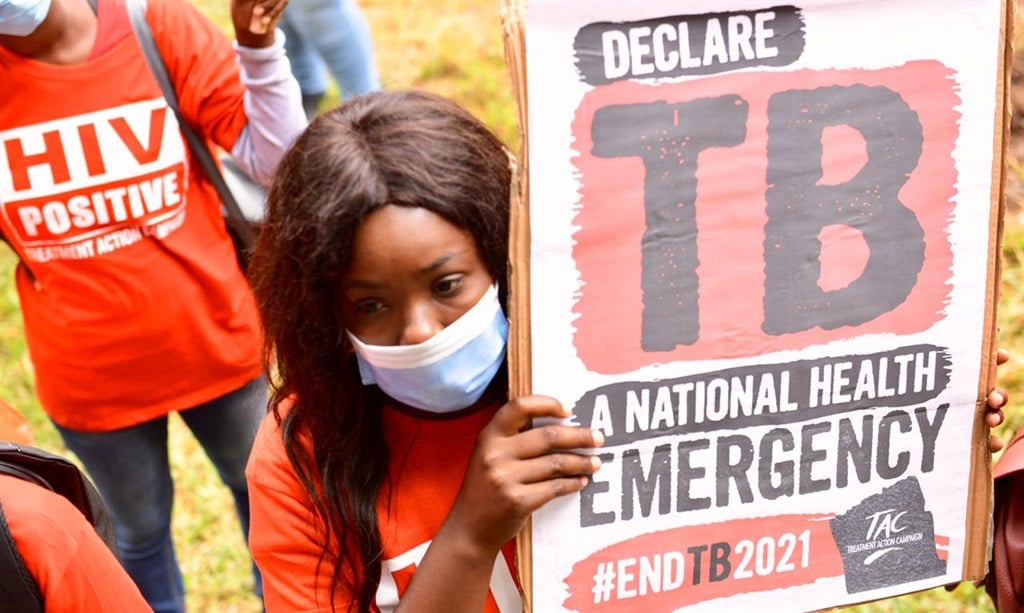
The SA Competition Commission has initiated an investigation into pharmaceutical giants Johnson & Johnson (J&J) for alleged excessive pricing on one of its tuberculosis treatments.
At the same time, in a fervent call to action, the international humanitarian organisation Doctors Without Borders (Médecins Sans Frontières or MSF) has appealed to J&J and Cepheid to publicly commit to improving access to crucial tuberculosis (TB) treatments before the upcoming United Nations General Assembly's second high-level meeting on the fight against tuberculosis, scheduled for September 22 2023.
MSF has implored J&J to pledge not to enforce any 'secondary' patents for bedaquiline, a vital TB drug developed by the company, in countries grappling with a high TB burden.
Additionally, MSF has called on J&J to withdraw and abandon all pending secondary patent applications for bedaquiline worldwide.
READ: Brics TB network already working to help SA's infected, says health minister
What is Bedaquiline?
Bedaquline is the first new drug class for the treatment of TB introduced in 40 years, and is crucial for the treatment of drug-resistant strains of the disease.
The drug is one of seven within the treatment regiment for multi-drug resistant TB.
In 2018, it was designated as a core component of the treatment regiment for rifampicin-resistant and multi-drug-resistant TB. It has significantly improved the treatment of DR-TB by offering a shorter, better-tolerated and more effective solution.
At the same time, it was found that access to the drug is far below global requirements, with affordability being one of the core stumbling blocks in improving this.
The drug initially sold on a tiered pricing model - $900 (R17 043) per six month course for low-income countries, $3000 (R56 800) for middle-income countries, and a massive $30 000 (R568 062) for high-income countries.
In 2014, Janssen, a J&J subsidiary, established a global donation programme which saw the drug being made available for free to countries eligible to receive funding from the US Agency for International Development Global Fund, providing 30 000 courses until 2018, and another 30 000 courses in the following year.
Though Janssen is a private company, their development of bedaquiline has benefitted from public funding in both Europe and the USA, as well as trials conducted by publicly funded organisations and universities in several countries, including one in South Africa, sponsored by the University of Cape Town and conducted at several facilities across the country.
In July 2018, a groundbreaking deal was struck between the SA government and Janssen, which saw the price for a six month regimen reduced even further, to $400 (R7 500) for a six month course, or R1 260 per patient per month. This move led to the drug being made available to all eligible countries to receive the same discounted price.
A report by the Treatment Action Group found that despite this reduction in price, the drug is still prohibitively expensive, and according to research from the University of Liverpool, Janssen could produce and sell bedaquiline for just $16 per monthly dose and still turn a profit.
South Africa recently signed a new deal with J&J, which would see the country pay R5 500 ($290) for a six month regimen of the drug, which came at around the same time as a J&J announcement that it was cutting the price of the drug to middle and low-income countries to $130, if purchased via the Stop TB Partnership's Global Drug Facility (GDF).
This has raised questions about why South Africa is paying more than double this rate for the drug, which it is buying directly from J&J, instead of through the GDF.
Patents hinder access to drug
MSF has been leading calls for the company to cap the price of the drug at double that ($32 or R607) since 2018.
However, the widespread availability of more affordable generic versions of bedaquiline remains hindered by secondary patents secured by J&J in numerous high TB burden countries, including those affected by TB-HIV and DR-TB.
Intellectual Asset Management, a publication focusing on intellectual property matters from a business perspective, highlights the substantial role secondary patents play in the pharmaceutical industry.
These patents often relate to the practice known as 'evergreening', where additional patent applications are filed to extend the patent monopoly on an existing product.
Such practices can complicate the entry of generic manufacturers into the market after the original patent has expired.
At a press briefing organised by MSF, along with the Rural Health Advocacy Project, Health Justice Initiative, and other health advocacy groups, on Thursday, concerns were raised about the pricing of bedaquiline.
Human rights advocate Fatima Hassan on Thursday morning revealed that the Competition Commission has initiated an investigation into J&J's conduct regarding bedaquiline.
The investigation centres on potential violations of the Competition Act related to the evergreening patenting practices surrounding the TB drug.
Hassan commended the Competition Commission for its groundbreaking action, stating: "As far as we are aware, this is the first time a pharmaceutical company's 'evergreening conduct' will be investigated by the competition authorities in South Africa. We believe that Johnson & Johnson has been informed that they are now under investigation.
"We will work together with other TB campaigners worldwide to provide information to the competition authorities to ensure that patients and people in South Africa are no longer subjected to the exploitative pricing conduct of Johnson & Johnson."
Last month, Johnson & Johnson announced a reduction in the price of bedaquiline from $289 to $130 per six-month treatment course, while Lupin offered a rate of $194 for the same period.
READ: SA still the world's HIV epicentre, while Covid reversed 12 years of TB progress
MSF acknowledged this price drop, attributing it to the entry of generic competitors into the market, bringing the price closer to the 2017 target of R10 per day.
However, MSF has raised concerns that access to the lowest-priced generic versions of bedaquiline will remain restricted for high TB burden countries in Eastern Europe and Central Asia due to patent-related barriers.
J&J South Africa has been approached for comment, and this article will be updated with their response.




 Publications
Publications
 Partners
Partners









